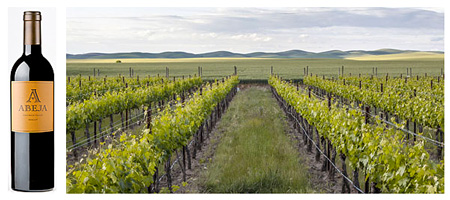| March 2015 | ||
| « Feb 2015 | News | Apr 2015 » |
March 26, 2015
THE FIFTH SENSE: UMAMI
::whispers:: “I see fed people.”
Way less scary than the next sense down the line, umami is the fifth sense of taste, a Japanese word that refers to the mysterious savory quality found in certain food and beverage. Perceived through the brain’s reception of glutamates, this sense can be picked up all over the tongue, by all tastebuds, and doesn’t necessarily correspond to that ersatz map of “sweet here, sour there” we grew up with as schoolchildren - rather, umami transcends and enhances these other flavors, making them a little more live, a little less Memorex.
In the simplest sense, umami really does make good things taste truly delicious, and fortunately for us humans it’s found in a wide array of foods, from tomatoes to Parmigiano to beef. Finding umami in beverages, however, proves a bit more challenging. While not necessarily a fleeting “unicorn” quality in wine, there is a really magical moment that happens when tasting something special, after the rigorous technical analysis, that becomes all about pleasure. One pauses: “what’s that lingering sensation that makes me immediately want another sip? What about this beverage makes me want to reach for a bite to eat?” Often, it’s that friendly ghost of the flavor spectrum, our dear fifth sense, umami.
At Cream, we’re umami freaks, and fortunate to have a portfolio where this delightful quality is represented from all corners of the globe: premium sake from Japan, an unparalleled sherry selection including some very special VORS, lees-y and compelling grower Champagne, and wild and savory natural wines. Have a little fun with your Cream rep this spring. Throw down the gauntlet, issue the challenge: bring umami! We promise we’ll be smiling, alllllll the way to flavor country.
written by Erin Drain
March 03, 2015
Domestic Spotlight: Abeja Merlot
Abeja, best known for its Cabernet Sauvignon, which accounts for the majority of its production, also produces limited bottlings of Merlot. Now that the post-Sideways backlash against Merlot has subsided, we can again rejoice in one of Washington’s standout grape varietals! Only 7 cases of this pure, lush and classic 2012 Columbia Valley Merlot are allocated to Illinois.

Grapes were sourced from Sagemoor Farms, Bacchus & Dionysus, Ciel du Cheval, Destiny Ridge and Scootny Flats. Wine was aged for 20 months in 90% French oak and 10% American oak; 60% new, 40% one-year. Stylistically, this Merlot is lush and rich, with excellent structure and complexity. Washington Merlot, in particular, is a special example of the varietal. The finished wine exhibits blackberries, cherries, wild strawberries, and creamy cocoa, combined with sandalwood and spice for a long, brooding complexity. The aromas are vibrant, and at the same time translucent and rich. The palate is balanced and full, with continuous body from front to back and a long, satin finish with the finest of tannins. The 2012 vintage was warm and a welcome change from the exceptionally cold and challenging 2010 and 2011.
John Abbott, owner and winemaker, likes to make music pairings for his wines. “Try the Talking Heads album, Little Creatures, and Message in a Bottle by The Police. Ooh La La by The Faces and Close to Me by The Cure would also be excellent choices.”
Why the name Abeja? When choosing a name for their vineyard, the owners wanted to represent a period of farming that had respect for the environment and close connection to the earth. The word “Abeja” is Spanish for bee. The simplistic nature and beauty of the word complimented their “farm softly” style. The honeybee is the ultimate symbol for their way of life because honeybees are so impacted by how one farms and yet very important to an ample and robust style of agriculture. The Abeja Winery truly strives to make a difference by minimizing impact and nurturing the land. Abeja vineyards are certified sustainable farming by organizations such as LIVE, Salmon Safe, and Vinea.
